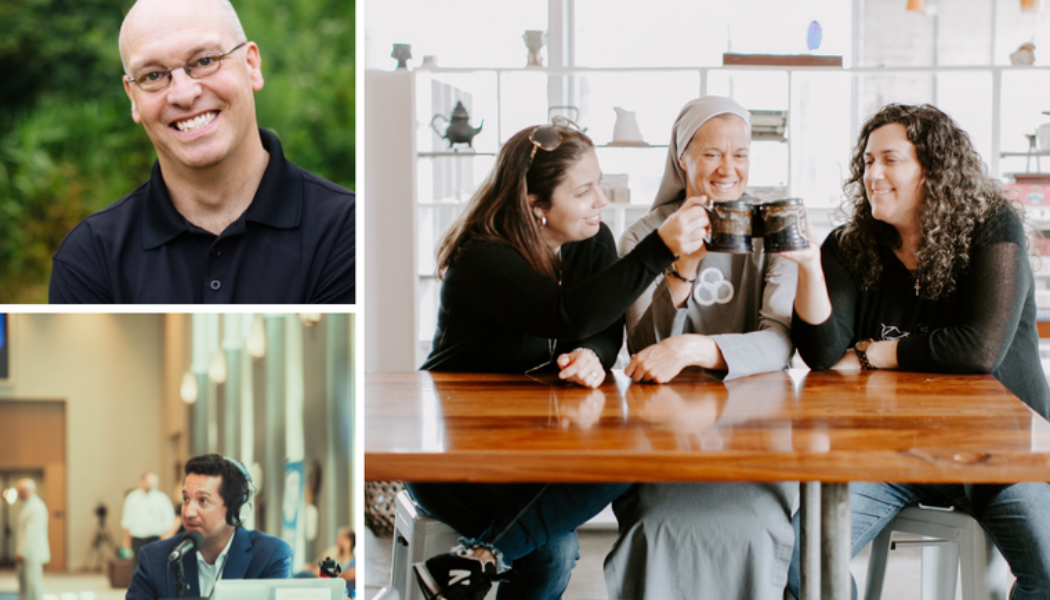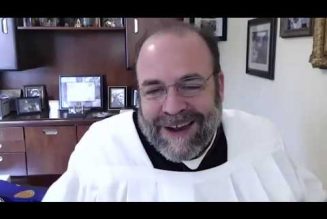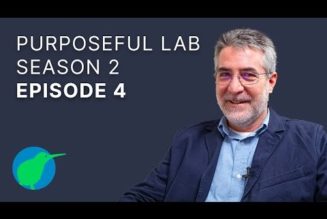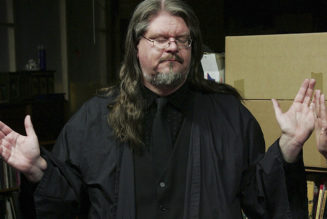
About a dozen years ago, and about seven months after becoming a Catholic, physician Tod Worner started a blog.
At first, he didn’t have much of an audience. But a couple years in, an article he wrote (“The Mean Grace of Flannery O’Connor”) got republished by Real Clear Religion. That led to more articles, published by Patheos, Aleteia, National Review, The New York Post — and by the Register.
About six years ago, he contacted Word on Fire, the Catholic media organization founded by now-Bishop Robert Barron, about writing for its blog. In 2019, he was asked to found the organization’s quarterly journal. That led to his new Evangelization & Culture Podcast, which debuted July 11, with an interview of Catholic author and columnist George Weigel.
The show, which now includes about 10 unaired episodes, isn’t about apologetics or scriptural exegesis. The guests are authors and content producers with something to say about culture. Worner sees it as an indirect way of moving people toward the faith.
“Catholicism engages everything. It has something to say about everything. And that doesn’t mean we have to always do it from a hymnal or from the chambers of the church. It’s in the streets. It’s in the library. It’s on the oceanfront. It’s in the restaurant — because Catholic sensibility engages everything,” Worner said.
Worner, 49, a 2010 convert from Lutheranism, is a practicing internist who lives near St. Paul, Minnesota, with his wife and two daughters, Annabel, 16, and Vivian, 14.
He is the latest among Catholics using podcasts, a digital program meant to be downloaded through the internet, to spread the faith. There are more than 3 million podcasts, according to “Listen Notes,” a website that tracks them. Three Catholic podcasters spoke recently with the Register.
The Counsel of Trent Horn
One is Trent Horn, 38, a staff apologist at Catholic Answers who hosts two podcasts, Catholic Answers Podcasts and The Counsel of Trent.
Horn’s approach combines traditional apologetics — explaining and defending the faith — with modern graphics and video cuts, including snippets from Protestant apologists and atheists Horn aims to refute.
Recent episodes poke holes in sola scriptura (the Protestant idea that Scripture is the only authority) and Mormonism.
“My hope is that Catholicism will seem more reasonable after watching my content. Whether Catholic or not Catholic, I hope that they will see that Catholicism is true, good and beautiful, and that it comports with what we know about the world around us,” Horn said in a telephone interview with the Register.
Horn is the author of Why We’re Catholic: Our Reasons for Faith, Hope, and Love (2017), which he thinks of as a companion to Catholic Answers founder Karl Keating’s Catholicism and Fundamentalism, which helped draw Horn to become a Catholic about 20 years ago.
Horn sees drawbacks to social media — vitriol, misleading titles, and an erosion of reading and attention spans, among other things. But it also has a unique ability to bring together people who disagree with each other, which he sees as valuable.
“Through the use of media we’re seeing a lot more engagement of Catholics and non-Catholics through debates. I think that benefits people to have more of those,” Horn said.
Horn told the Register he creates three episodes a week, usually on Mondays and Tuesdays. He edits the shows himself.
They are tightly scripted, in order to fit a lot of material into about a half-hour. It’s not obvious from the videos, but Horn is reading from a teleprompter. Over time, he migrated away from the conversational style that leads to longer discourses.
“I want to be really respectful of people’s time and just give them good information,” Horn said.
Three Amigas
Another Catholic podcast, Abiding Together, grew out of three-way telephone conversations between two friends from college and a religious sister they met about a dozen years ago.
“We just speak from the heart. This has been so fruitful for us. We just sat at each other’s feet as friends. We just thought this might be fruitful for other people. And it was,” said Heather Khym, who co-hosts the podcast with Michelle Benzinger and Sister Miriam James Heidland, a member of the Sisters of Our Lady of the Most Holy Trinity.
It’s not all church stuff. The podcast began in February 2017 with — literally — coffee talk. That led to a discussion of women coming together in “organic sisterhood,” taking as a jumping-off point a quote attributed to 19th-century English poet Matthew Arnold: “If there ever comes a time when the women of the world come together purely and simply for the benefit of mankind, it will be a force such as the world has never known.”
Conversations get personal. Khym, for instance, has talked about her husband’s addiction to pornography early in their marriage. Benzinger in a recent episode talked about troubles with her kids’ behavior, wondering if she and her husband have properly modeled God’s love to them. Heidland, a former Division 1 volleyball player and college party girl, has spoken publicly about being a victim of sexual abuse and her past struggles with alcoholism and depression.
Opening up is key to the podcast’s ability to connect with listeners, Khym told the Register.
“And everybody knows life is really messy. It’s not real for us to just talk about the great things, when we’re making good decisions. The reality is our lives are a mess, and it’s only through God’s grace that we have healing,” Khym said.
Khym said the podcast draws about 75,000 listeners a week.
“I think one of the things that we all have been struck by is how deep this is for people,” Khym said, “… people feeling like the Lord is speaking hope to them through our conversations.”
A promotional photo on the podcast’s website shows the three women clinking mugs while sitting at what looks like a coffeeshop. But they aren’t often together. Khym, who has three children, ages 20, 17 and 16, lives near Vancouver, British Columbia. Benzinger, who has six children ranging from teens to early 20s, lives in Pensacola, Florida. Sister Miriam lives with her religious community in Corpus Christi, Texas, though she travels frequently. Laptops, microphones, headsets, internet connections and a part-time production staff of three make the podcasts possible.
What’s the goal?
“I think we’re trying to look at it from a place of wholeness. We’re not just people who have a spiritual life. We have relationships; we have a work life. And what we want to see is people thrive,” Khym said. “… We want people to fall in love with Jesus and let him into every part of their life.”
Make ’Em Laugh
In his first episode, Worner probably surprised Weigel with his first question — about a comment Weigel once made calling the nap “perhaps Italy’s greatest contribution to human civilization.” Is that how Weigel manages to produce so much content? Yes, Weigel said, it’s a big factor.
The interview addresses ideas and facts in Weigel’s most famous book, a biography of St. John Paul II called Witness to Hope, along with some of his other writings, but it doesn’t stay there.
Instead, listeners learn how Weigel got the idea to write the biography (he reviewed a previous effort he found “dreadful” and decided he could do it better), how his struggles as a student in 1972 with philosopher Edmund Husserl (“indisputably one of the five worst writers in the history of written language”) helped prepare him for explaining the ideas of John Paul II 25 years later, how he reads a Civil War book every year while travelling to teach a summer course on Catholic social teaching in Krakow, Poland, and how he tries to visit Gettysburg once or twice a year.
Worner said he plans to use that approach with future guests.
“It’s so much more than the work that they’ve done. It’s who they are,” Worner said. “Hopefully one thing that people come away with … from this podcast is the fundamental interest in these people.”
Worner added, “One thing everybody likes is stories. Everybody likes anecdotes. We should be eliciting story after story from these great guests. We should provoke them in a good way. We should make them laugh.”








